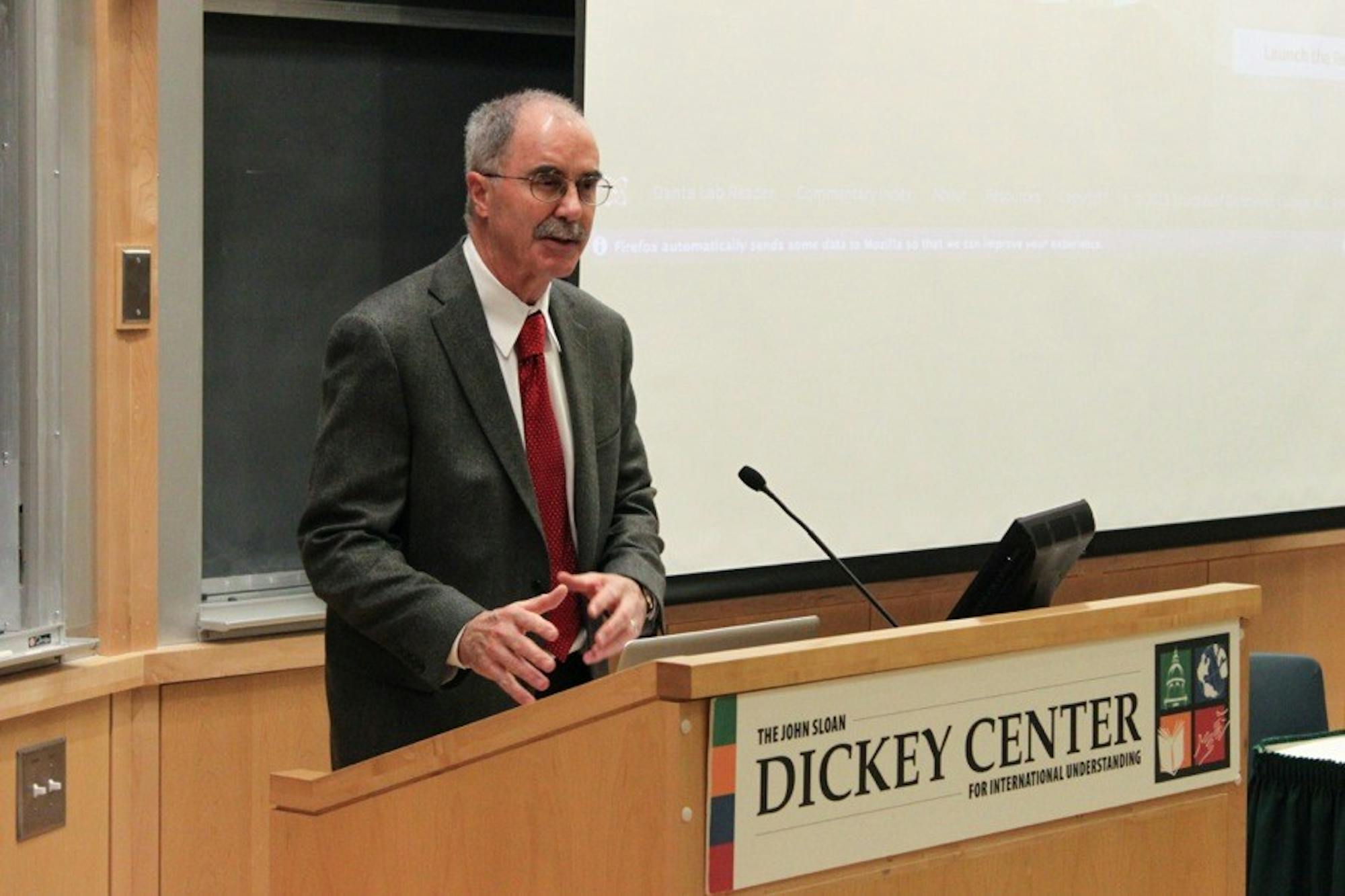For centuries, scholars interested in Dante’s “The Divine Comedy” were accustomed to combing through heaps of physical documents, most of which were housed in Italy. These academics were granted instant access to historical and contemporaneous Dante scholarship through the Dartmouth Dante Project, which in 1988 began digitizing poem and commentaries from 1322 onward.
On Thursday, the French and Italian department held a conference announcing a major update, called Dante Lab, which will restyle and add functionality to the resource.
The conference was attended by Dartmouth students, community members and scholars from universities the University of Virginia, the University of Chicago and Brown University. Opening remarks were made by College President Phil Hanlon, associate dean of the faculty for the arts and humanities Adrian Randolph and Italian languages and literature department chair Graziella Parati.
Italian and medieval studies professor Scott Millspaugh and media expert Jennifer Mirsky presented the new Dante Lab website, and the two panels that followed focused on similardigital projects.
Dante Lab, funded by the Neukom Institute for Computational Science, is the latest iteration of the Dartmouth Dante Project founded by former professor Robert Hollander.
The original project, which was lauded for making accessible otherwise obscure texts, was “very important for the way in which Dartmouth was perceived abroad,” Parati said.
This conference showcased the first stage of the Dante Lab project, which included a website redesign. The second phase next year will incorporate interactive features and additional translations.
Millspaugh’s winter course on Dante will be the first to use the site.
The project has been in the works for about a year. Parati, Millspaugh and others sought to improve navigation, create interactive online classroom space and include full translations of the text and its commentaries in multiple languages.
Neukom Institute director Daniel Rockmore solicited project interdisciplinary proposals and provided the funding for the revamp.
Throughout the process, Dante scholars’ input on content and functionality was taken into account.
The first panel at the conference was devoted to digital projects in French, and was led by comparative literature professor Michelle Warren with speakers from the University of Virginia, Baylor University and the University of Chicago. French and comparative literature professor Andrea Tarnowski hosted the second, which focused on digital projects in Italian with speakers from the University of Oregon, the University of Virginia and Brown University.
In the roundtable concluding the lecture, attendees discussed expanding Dante’s reach through the relaunched website.
When it comes to funding scholarly websites, many institutions allocate funding by tracking projects’ viewership numbers. Sarah-Jane Murray, a French professor at Baylor University, said contemporary scholars should avoid using websites’ hit counts as an indicator of success, since academic topics are specialized by nature.
The roundtable also discussed the schism between scholars who support incorporating technology into the classroom and those who are more wary. Panel members said bridging these camps is possible.
“One of our jobs as educators is to provide opportunities for careful thought, and making and using the technology to do that since our students are in technology,” Millspaugh said.
The conference was titled “Digital French and Italian.”




